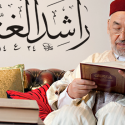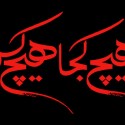
The most valuable asset we have today in resolving the problems created by the phenomenon called globalization, and in benefiting from the opportunities it presents, is our human resources.
Therefore, states must establish and further strengthen free, open and participatory structures in order to make the most out of this human potential. In this regard, civil society organizations are of great assistance to us.
As Turkey, we have expressed on many occasions the need to benefit from the contributions of civil society organizations in overcoming the problems infecting the countries in the Islamic world.
The Islamic world has the capacity to catch up with our times on the basis of its rich culture and the universal values which Islam has also contributed to. We now need to mobilize this potential at the level of both Governments and societies.
We see that the urgency of achieving the desired development in political, economic and social fields is increasingly reflected in our public opinion. Muslim countries have to assume their responsibilities and be more active to find their own solutions for their problems and to pave the way for positive change. The need for reform is being openly expressed in our societies. We have to recognize this demand and assume the ownership of the necessary process of change.
On the other hand, in order to be practicable and sustainable, the process of change should be responsive to the expectations of our societies and must be owned by them. Civil society will play an indispensable role in successfully pursuing this endeavour. Adaptation of societies to the realities of our age while preserving their own identity will be possible only with the active involvement of civil society. Acting as a bridge between Governments and the people, civil society organizations carry great potential to facilitate the reform processes.
We recognize that the problems of the Islamic world which are yet to be resolved date back before the geopolitical changes that we have witnessed in recent years throughout the whole world and particularly in the Middle East. However, it is also a fact that the developments affecting international order, and in particular the increasing power of globalization to influence all walks of life have rendered the need to find solutions to our problems even more urgent.
In today’s world, technological and scientific advances affect our lives in all fields. Through television and the internet, events in far away corners of the world can be watched. Access to information has become ever easier. As information becomes globalized, everyone can follow everyone else. Consequently, with the phenomenon of globalization, the classical notion of sovereignty has also changed. States are now responsible for their actions not only to their people, but to the whole international community.
Therefore, we need to have a wider and more realistic perspective in order to accurately diagnose the problems. The important thing is not to be led by a simplistic approach that contents itself with presenting our problems solely as others’ faults. Clearly, societies are adversely affected by certain problematic elements of international politics. External factors should, of course, not be ignored. However, putting the blame on others for every issue will not solve our problems. To see the causes of our problems we have to look at ourselves as well. Representatives of civil society have an important responsibility in this regard.
Obviously, the growing role of civil society organizations in political life is a relatively new phenomenon. Accordingly, the “state” which is increasingly confronted by these new actors in its traditional domains of sovereignty shows certain reflexes against them.
At times, civil society organizations, in their capacity as the advocate of individual and societal rights, criticize the state. This is an important function, and, in the final analysis, contributes to improving the administration of societies.
In our era, the demands of the so-called “third sector”, the power of the community which ensures that decisions affecting daily life are shaped by the input coming from the people, are articulated through civil society organizations. As such, the public itself is given a say in the equitable and rational allocation of resources.
Civil society organizations enjoying a strong position in the West also perform the function of controlling Governments and, as such, play a guiding role without seeking merely their narrow self-interest. They function as opinion formers, highlighting the priorities of the people. The strengthening of civil society in Muslim countries too will improve the quality of public services and their efficiency.
In international meetings, declarations by government representatives make an impact up to a certain point, whereas, initiatives and/or statements coming from the civil society can sometimes be more credible and direct.
Volunteerism, sacrifice, and serving the public interest are important features of Islamic tradition and faith. It is therefore a significant shortcoming that, despite this fact, civil society organizations in Muslim countries are not adequately strong in our modern age.
Governments have to function in line with what the responsibility of governing requires, but they should also attend the advice and criticism coming from civil society. On the other hand, it is also important that civil society organizations express their criticisms in a constructive manner.
In terms of the problems of the Islamic world, two main categories come to mind. The first category relates to the problems or misperceptions that arise in the relations between the countries with Muslim populations and others, in particular the West.
For sure, in our world today terrorism cannot be condoned in any way. It has unfortunately had a negative impact on the image of the Islamic world. This important issue which needs to be well-addressed, puts responsibility on both sides. I sincerely believe that the platform you intend to develop today in this meeting can be of great help in this regard.
Recently, the international interest in the Islamic world has increased throughout the entire world. However, in many cases, we observe with great dissatisfaction that the point of departure for this interest derives rather from the negative considerations or perceptions regarding the Islamic world. I believe that we have to turn this international interest into an opportunity so as to better present Islam and the Islamic community to the world at large.
Today, particularly in the West, the Islamic world is being studied from various perspectives and certain projections are being made. In order to benefit from this interest and to paint a more accurate picture of Islam and Muslim, we should not turn our backs to these efforts, but on the contrary, contribute to them as equal intellectual partners. The higher the scientific and philosophical level and the representative quality of contributions emanating from within Islam, the more their chances will be to influence the debate around the world.
It is, therefore, of great importance that, based on the fundamental principles of the Islamic tradition, such as tolerance and moderation, we take an open-minded, realistic but equally visionary approach.
Another important issue which I would like to draw your attention to is the risk of generalizations and reductionism that certain parts of the West demonstrate towards the Islamic world, to creep into our view of the West as well. Our relationship with the West should not develop on an adversarial basis.
Turkey’s Islamic identity has not prevented it from having a close interaction with the West and from being an important member of the Western institutions and organizations. We pursue and further develop our integration with the West on the basis of mutual interest. The successful completion of Turkey’s EU membership process will signify yet again the harmony of a Muslim society with the European peoples by coalescing around common, universal and democratic values.
In relation to problems, the second, and I believe the more important, category points to a more essential and comprehensive issue : The problems that the Islamic world faces within itself. We see that these relate primarily to matters of human development that have political, economic and social dimensions.
Civil society organizations are among the main driving forces that contribute to forming an environment of freedom where human creativity can be mobilized so as to find rational solutions to problems.
In seeking solutions to their problems, it may be possible for Muslim societies to form rules and concepts appropriate to their own circumstances. However, the universal values and principles that aim to promote human well-being are well known and are inseparable parts of Islamic belief. Therefore, universal values, which have been fed by mankind’s collective wisdom and conscience as developed though the interaction among different civilizations throughout history, serve as guiding principles for Muslim societies as well.
There is indeed a rich and useful common core shared by Muslim societies. This core is in full harmony with universal values. Principles such as justice, sense of helping and sharing, compassion, moderation, equality, struggle with injustice and corruption and respect for diversity that are at the root of Islam have contributed to universal values throughout centuries. In this respect, what needs to be done is to approach the issue with self-confidence and an open mind and without any complexes.
Surely, there is no one single formula in attaining the aspired goal of development of our peoples. The different historical experiences and the qualities of different societies need to be taken into consideration. What is important is to remain in the right direction and follow the path of reason that the Islamic tradition also indicates.
Turkey has been drawing attention to the need for reform within the Islamic world for a long time. I, too, since the beginning of my term in office, have emphasized on various occasions, including in OIC meetings, that time has long come for addressing the political, economic and social shortcomings of our societies.
In this connection, underlining the importance of universal values, I pointed to requisites such as democracy, rule of law, human rights, good governance, transparency, accountability, gender equality, the rejection of violence, and economic structures that function more effectively and freely. I made the point that, it is primarily our responsibility to put our house in order, and that no one else can accomplish this better than us. If we cannot do this ourselves, others will do it for us. And the way to put our house in order is to engage in a healthy process of change, that is, to put in place a realistic reform agenda.
Clearly, the reform that is needed here pertains to the governance of Muslim societies, not to Islam itself. Islam does not, of course, need to be reformed. The need is for governments to respond to the demands of change. In this sense, one should not fear the phenomenon of reform.
In conclusion, we have to diagnose our problems freely, and engage in a responsive and constructive exchange of views. Problems that social reality presents us in the form of multi-variable equations need to be addressed with a multi-disciplinary approach. To the degree that we are successful in this, we will be able to defend the interests of our nations in a stronger way.
(This article is compiled from Minister Gül’s speech to the “International Conference of Islamic Civil Society Organizations : In Search of a New Vision in a Changing World” held on 1 May 2005 in Istanbul)
Abdullah Gul – Deputy Prime Minister and Minister of Foreign Affairs of Turkey




iThere are no comments
Add yours